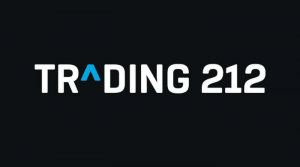Dark pool stock exchange IEX controversially approved by CFTC
CFTC’s approval of a new stock exchange puts the high frequency cat among the establishment pigeons as Brad Katsuyama’s IEX forges ahead with dark pool venue’s speed bump to slow orders

The U.S. Securities and Exchange Commission has given a controversial approval to IEX Group’s plan for a new stock exchange that comes with a built-in “speed bump” to check high-speed traders, despite protests from those traders that the move would interrupt trades marketwide.
With North America’s notoriously conservative regulator having given this a rubber stamp, it may reopen criticism from compatriots New York Stock Exchange and BATS Global Markets who accused IEX of skewing facts to help win approval.
Brad Katsuyama, CEO and founder of IEX is also no stranger to controversy, being the focus of Flash Boys, a non-fiction book by Michael Lewis about high-frequency trading (HFT) in the financial markets.
Mr. Katsuyama is an astute interbank financial markets senior executive, having spent many years at the Royal Bank of Canada , where he was formerly the Global Head of Electronic Sales and Trading. In this role, he was responsible for multiple global teams including: electronic sales, electronic trading, algorithmic trading, market structure strategy, client implementation and product management. His prior management roles at RBC were Head of US Cash Equity Trading, Head of US Hedge Fund Coverage, and Head of US Technology Trading.
HFT problems, discovery and response.
While at RBC, he noticed that placing a single large order that can be fulfilled only through many different stock exchanges was being taken advantage of by predatory stock scalpers. Scalpers, noticing the order would not be able to be fulfilled by one single exchange, would instead buy the securities on the other exchanges, so that by the time the rest of the large order arrived to those exchanges the scalpers could sell the securities at a higher price.
All these events would happen in milliseconds not perceivable to humans but perceivable to computers. He instead led a team that implemented THOR, a securities’ order-management system where large orders are split into many different sub-orders with each sub-order arriving at the same time to all the exchanges through the use of intentional delays.
IEX becomes disruptive new kid on the block
Following Katsuyama’s discovery of certain unfair high-frequency trading practices, he decided to improve the business of the stock market, leaving RBC in 2012 to start-up a fairer stock trading venue. The Investors Exchange, IEX was born from his RBC departure. IEX became an emerging stock exchange, organized as an alternative trading system, which is regarded as a dark pool.
Company representatives have stated their intention to convert to a public exchange upon reaching sufficient trading volume, and it opened for its first day of trading on October 25, 2013.
William O’Brien, at the time president of competing business BATS Global Markets, asserted in April 2014 the IEX was trying to build its business by generating ‘fear’, ‘mistrust’ and ‘accusations’. Financial writer Michael Lewis praised IEX as an appropriate and beneficial response to HFT abuses. Since the publishing of Flash Boys and the opening of IEX, several U.S. authorities have confirmed they are looking into certain practices used by high-frequency traders. The FBI, the U.S. Securities and Exchange Commission, the U.S. Justice Department and the Attorney General of New York State all have investigations underway.
The approval of the exchange, with implementation of a ‘speed bump’ means that orders which are sent to IEX for execution are slowed by 350 millionths-of-a-second, allowing ever-changing prices to be verified before sophisticated, opportunistic traders can act on stale prices, effectively queue-jumping.
Three years ago, other institutional ECNs such as EBS, the electronic brokerage division of British interdealer broker ICAP considered putting in a latency ‘floor’ for the same purposes and in order to appease certain European regulators such as BaFIN in Germany which began to take a very dim view toward HFT.
Despite the speed bump being implemented and approved by the CFTC, the exchange remains a moot point among Chicago’s vast, established electronic derivatives exchanges.
IntercontinentalExchange, which owns the New York Stock Exchange, has called IEX ‘un-American’, and many skeptics consider that over-regulation prevents exchanges from slowing orders and therefore when IEX itself sends orders for execution to other exchanges, they bypass the speed bump giving IEX an unfair market advantage.
Most certainly, HFT and the use of algorithmic systems is not only alive and well in America, but it is part of the landscape of the proprietary trading epicenters of Chicago and New York, this being a further development, however its approval is most certainly not of the usual direction.









